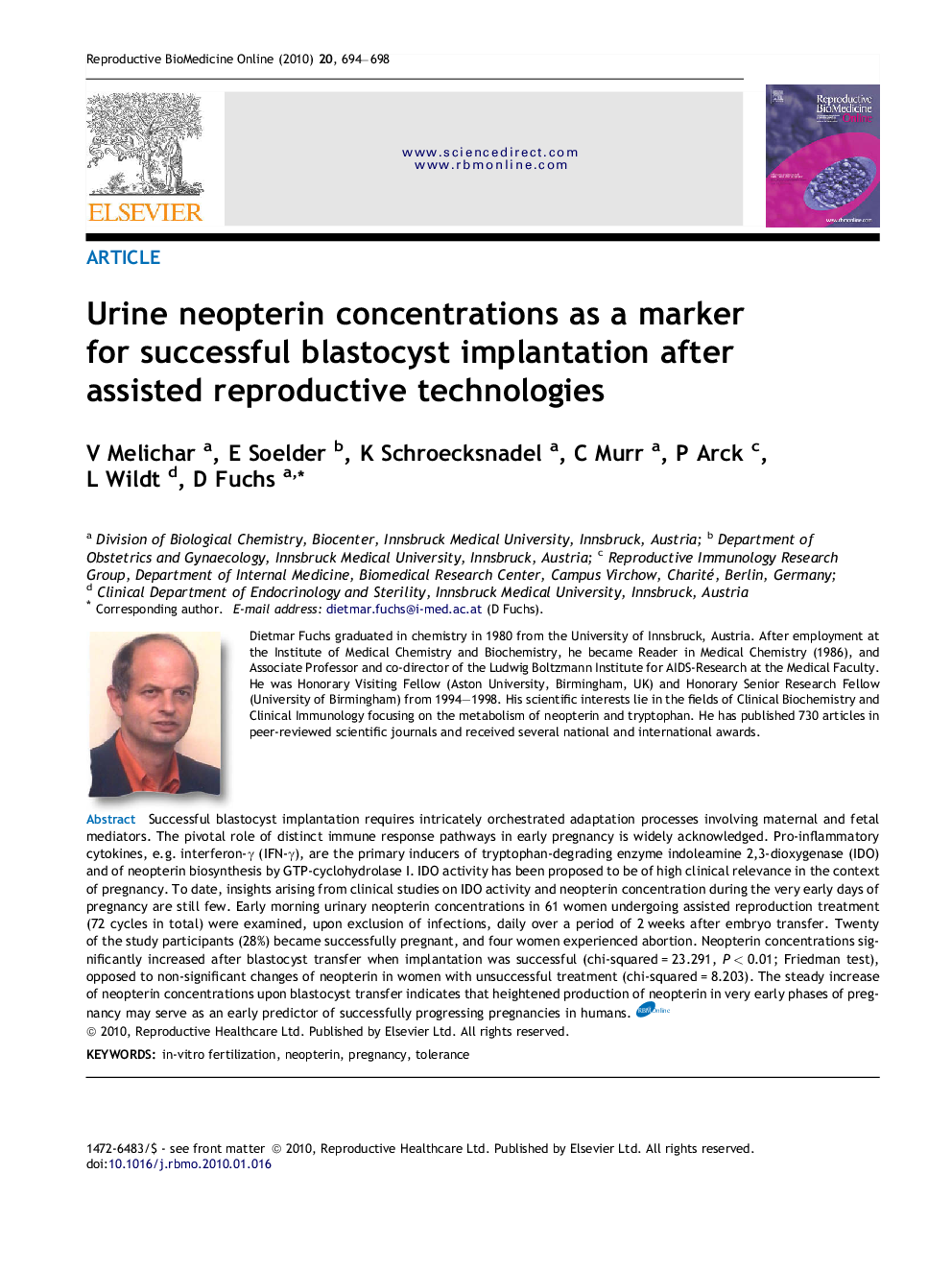| Article ID | Journal | Published Year | Pages | File Type |
|---|---|---|---|---|
| 3971717 | Reproductive BioMedicine Online | 2010 | 5 Pages |
Abstract
Successful blastocyst implantation requires intricately orchestrated adaptation processes involving maternal and fetal mediators. The pivotal role of distinct immune response pathways in early pregnancy is widely acknowledged. Pro-inflammatory cytokines, e.g. interferon-γ (IFN-γ), are the primary inducers of tryptophan-degrading enzyme indoleamine 2,3-dioxygenase (IDO) and of neopterin biosynthesis by GTP-cyclohydrolase I. IDO activity has been proposed to be of high clinical relevance in the context of pregnancy. To date, insights arising from clinical studies on IDO activity and neopterin concentration during the very early days of pregnancy are still few. Early morning urinary neopterin concentrations in 61 women undergoing assisted reproduction treatment (72 cycles in total) were examined, upon exclusion of infections, daily over a period of 2 weeks after embryo transfer. Twenty of the study participants (28%) became successfully pregnant, and four women experienced abortion. Neopterin concentrations significantly increased after blastocyst transfer when implantation was successful (chi-squared = 23.291, P < 0.01; Friedman test), opposed to non-significant changes of neopterin in women with unsuccessful treatment (chi-squared = 8.203). The steady increase of neopterin concentrations upon blastocyst transfer indicates that heightened production of neopterin in very early phases of pregnancy may serve as an early predictor of successfully progressing pregnancies in humans.
Related Topics
Health Sciences
Medicine and Dentistry
Obstetrics, Gynecology and Women's Health
Authors
V. Melichar, E. Soelder, K. Schroecksnadel, C. Murr, P. Arck, L. Wildt, D. Fuchs,
